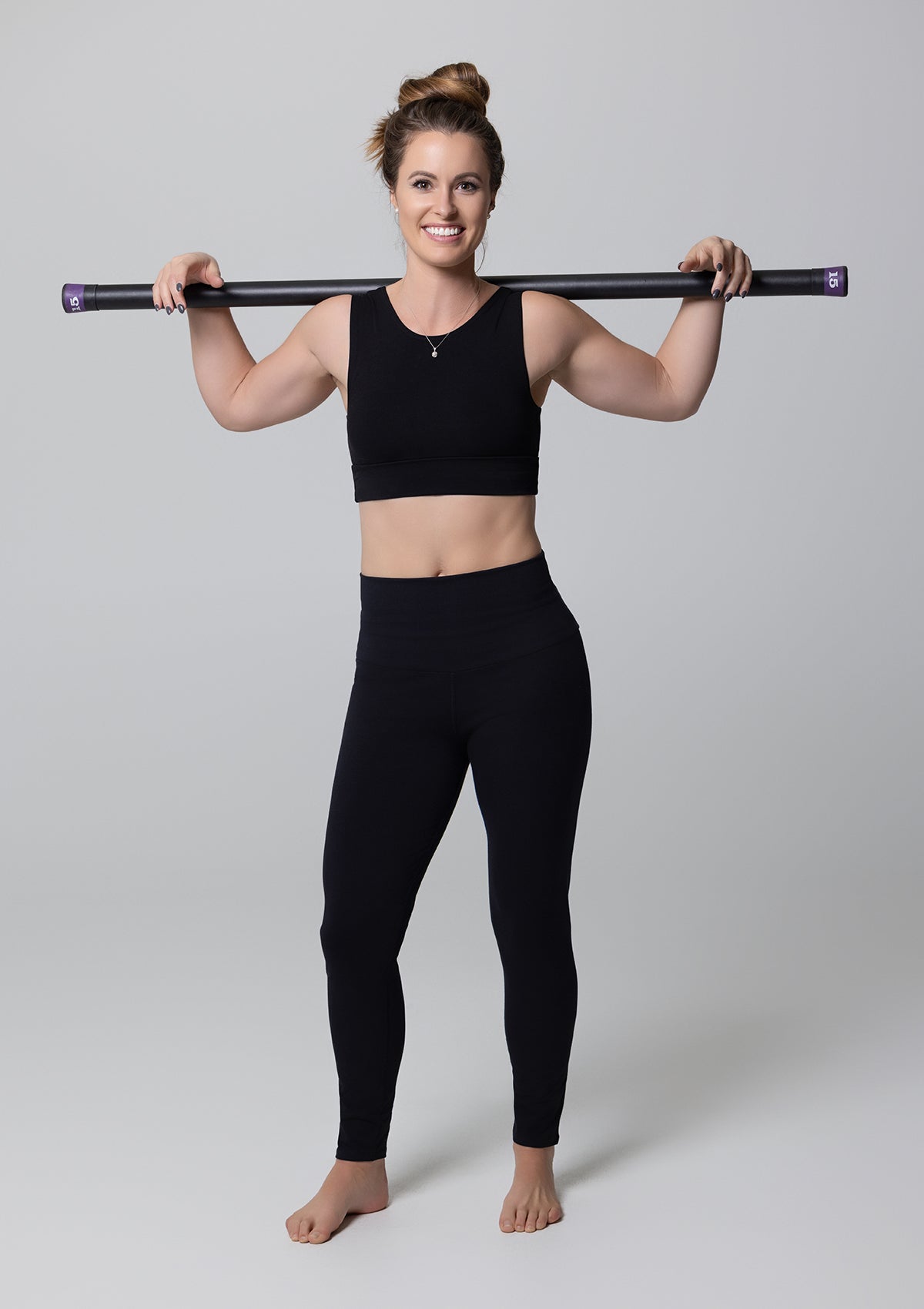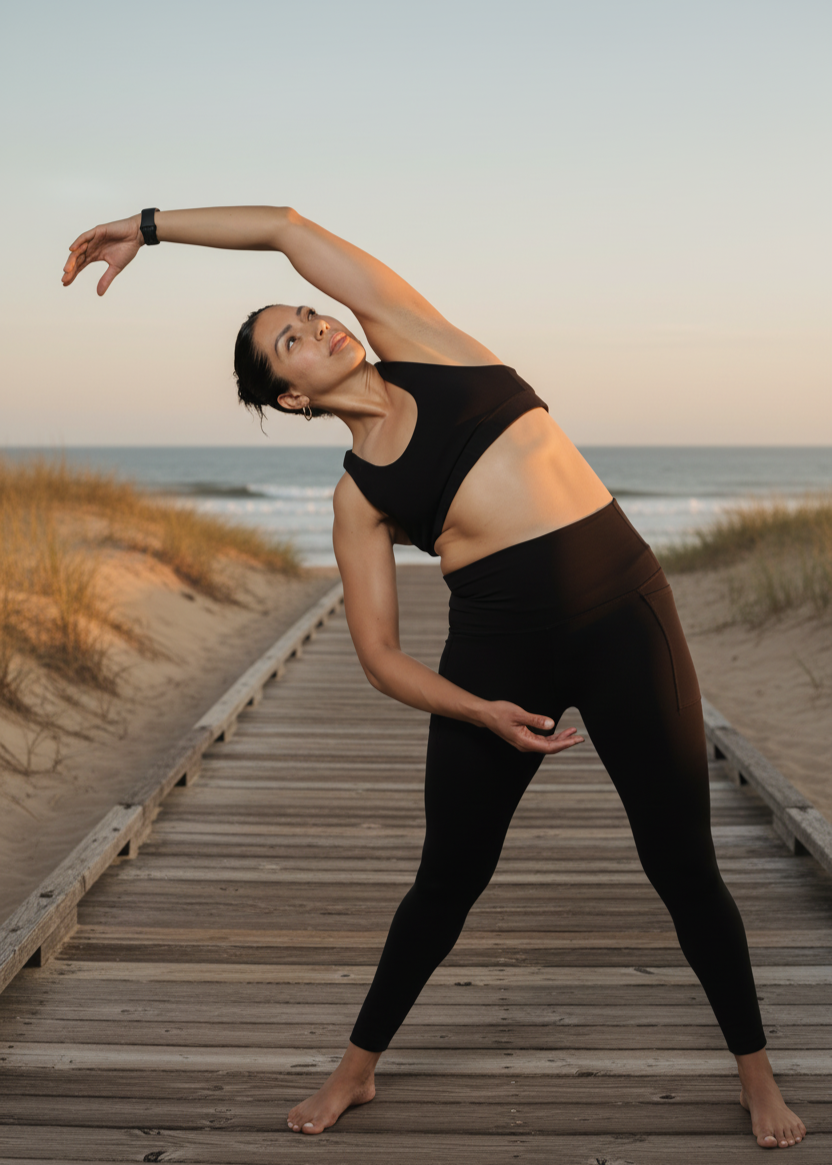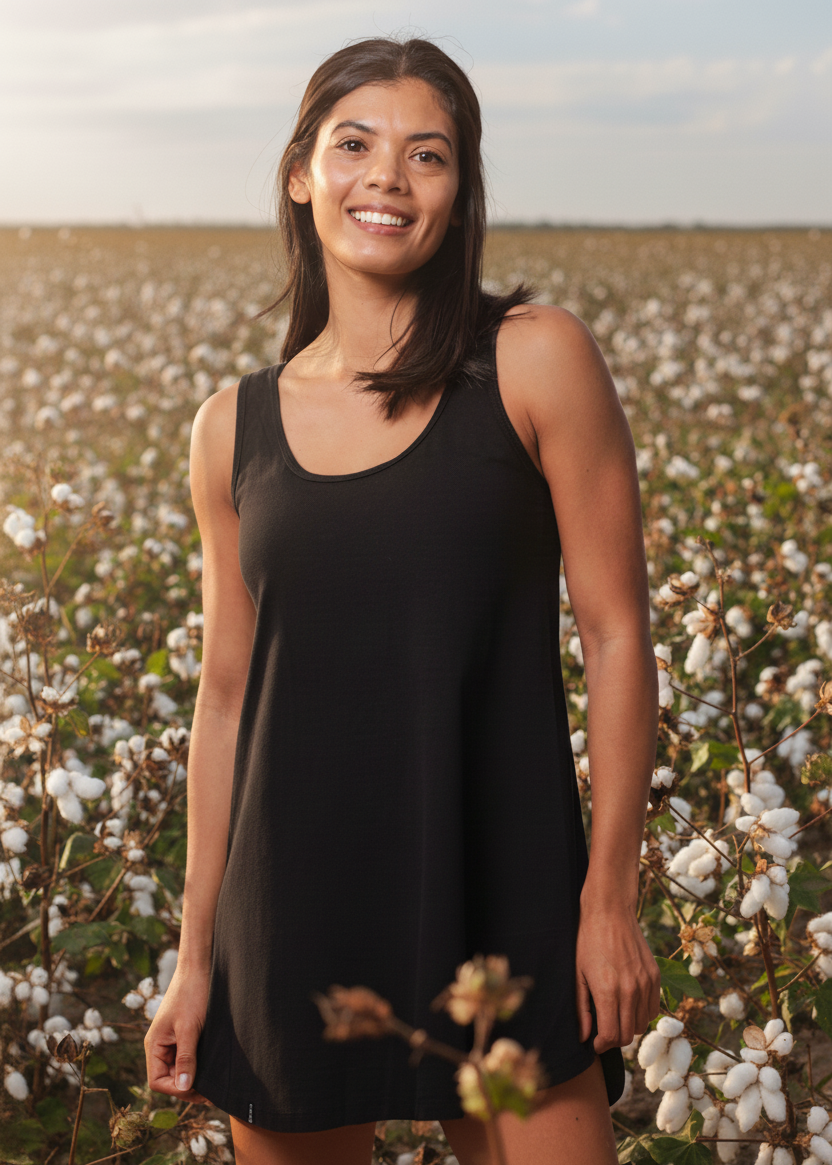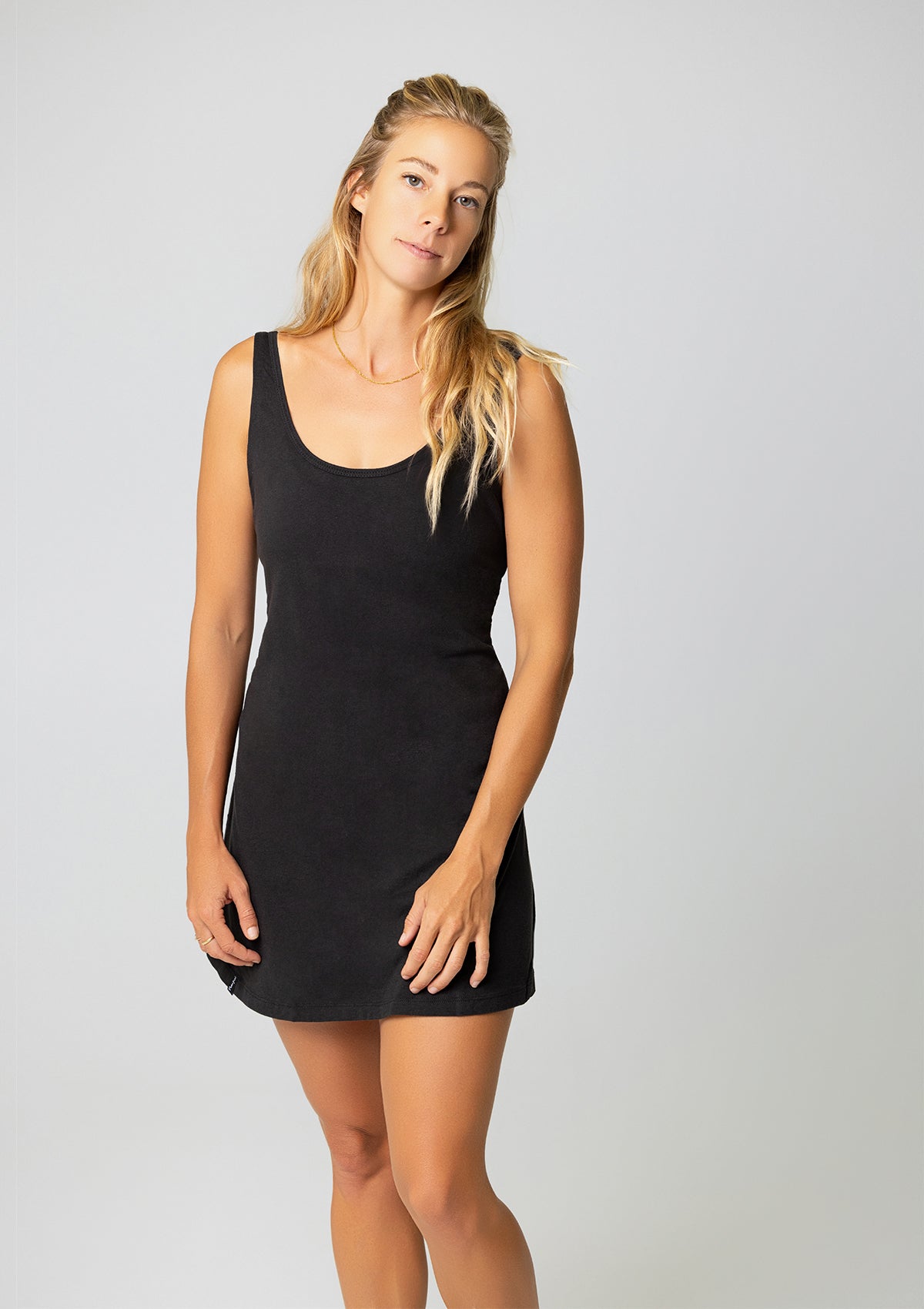
100% Cotton Fabric Clothing: Debunking Myths & Misconceptions
Ever grabbed a ‘100% organic fabric’ tee only to find it’s anything but pure? It’s a common frustration, misleading labels leaving you questioning what’s really in your fabric clothing. The reality? Authentic, 100% natural fabric clothing, especially for women, transforms performance, comfort, and sustainability.
Picture cooling fabric clothing made from 100% organic cotton. It’s breathable, soft, and kind to the planet. Organic cotton clothes, such as tees and leggings, shine with cotton fibers that wick moisture and feel great against the skin, making them perfect for active lifestyles. Yet, myths linger, claiming organic cotton production harms the environment or that cotton items lack durability.
Not so fast, sustainably sourced cotton offers a greener edge over synthetic fabrics. Rooted in PuraKai’s EEAT-driven approach to sustainable activewear, this guide unravels the truth. Join us as we unravel common misconceptions and discover together why organic cotton fabric is a vital addition to your wardrobe, perfect for both style and value.
2. Defining “100% Fabric Clothing”

By law, care tags that proclaim “100%” must list a single fiber, e.g., 100% organic cotton, covering all primary textile components. Loopholes exist: trims, linings, or decorative stitching can still contain blends, and terms like “100% fiber content” may mask synthetic threads in seams.
Under the microscope of fabric organic clothing, organic cotton reigns supreme. Pure organic cotton varieties, ranging from pima cotton and cotton jersey to cotton linen and cotton pieces, offer breathability, softness, and a minimal environmental impact when grown organically.
Recycled polyester garments utilize post-consumer plastics to enhance the strength and improve the cooling performance of fabric clothing, while virgin polyester remains a common choice in activewear. Nylon pieces, renowned for their durability and stretch, offer long-wear reliability; however, they rely on fossil-based inputs.
Natural alternatives, such as bamboo and hemp, present emerging options that combine moisture-wicking properties with sustainable profiles. For those seeking comfortable, 100% natural fabric clothing, understanding these distinctions helps you find authentic. 100% natural fabric clothing for women, ensuring your favorite women's organic cotton garments match their labels.
Common Myths & Misconceptions

Myth 1: “100% Cotton Means Chemical‑Free”
A common myth about workout clothing is that 100% organic cotton is inadequate. The assumption is that cotton soaks up sweat and stays wet, leaving you uncomfortable during exercise.
While this might hold some truth for intense, sweat-drenched sessions, it’s far from the full story. Let’s unravel this myth and explore why natural fabric clothing for women, such as cotton, can truly shine in the right context, especially with a touch of innovation.
The Myth and the Reality
The idea that 100% organic cotton clothing is impractical for activewear stems from its natural ability to absorb moisture. Yes, cotton traps moisture, which can feel heavy during a marathon or a high-intensity interval training (HIIT) class. But here’s the twist not all workouts are sweat-soaked sprints.
For low-impact activities like yoga, where comfort and breathability take precedence over extreme moisture management, organic cotton-based cooling fabric clothing can be your favorite companion. Its ability to absorb sweat can even keep you feeling dry during gentler movements, while its softness soothes sensitive skin.
Why Cotton Works for Activewear
-
Natural and Breathable: Cotton, a natural fiber, allows air to flow freely, making it a comfortable fabric that keeps you cool.
-
Soft and Gentle: Perfect for women, cotton pieces like a cotton dress or tank top are kind to your skin, with no irritation.
-
Hypoallergenic: Ideal for anyone prone to reactions, unlike some synthetic fabric blends.
-
Eco-Friendly: As part of sustainable fashion, organic cotton avoids microplastics and promotes an environmentally friendly approach.
-
Adaptable: With clever weaves or treatments, cotton transforms into performance-ready cotton lounge or workout gear.
Enhancing Cotton for Movement
Specific weaves, such as jersey or cotton gauze, can lighten the fabric and enhance airflow, while moisture-wicking treatments help it dry faster.
PuraKai’s breathable cotton tees, crafted from 100% organic cotton, are designed for yoga and other low-impact routines. They prioritize comfort over heavy-duty sweat control, proving cotton’s place in the shop's 100 activewear collections.
Cotton’s Activewear Comeback
So, while a cotton zip-up might not replace polyester for a triathlon, it’s a stellar choice for yoga, Pilates, or a cozy sleepwear session. With rising demand for cotton and innovative design, cotton blends and pure cotton alike are redefining oversized comfort in motion. Thanks to brands like PuraKai, natural fabric clothing for women shows that cotton isn’t just suitable, it’s sensational.
Myth 2: Organic Cotton Offers No Real Benefits
The notion that organic cotton is just a buzzword with no substantial advantages is a common misconception that overlooks its profound impact. Far from being a marketing ploy, organic cotton delivers tangible environmental and health benefits, making it a cornerstone of sustainable fashion. Let’s explore why this natural fabric is a game-changer for your wardrobe and the planet.
Environmental Impact: A Greener Choice
Organic cotton farming is a boon for the environment. Unlike conventional methods that rely heavily on pesticides, organic cotton production avoids the use of harmful chemicals, thereby protecting the soil, water, and wildlife. A striking fact: organic cotton farming can use up to 91% less water than conventional methods, easing the strain on precious resources.
This produces 100 cotton items, such as PuraKai’s cotton t-shirts and summer tops, which are not only stylish but also environmentally friendly. When you shop 100% organic cotton, you’re supporting practices that nurture the earth, from cotton pajamas to cooling fabric clothing for summer clothing needs.
Health Benefits: Kind to Your Skin
For those with sensitive skin, organic cotton is often the preferred choice. Free from residual pesticides and synthetic dyes, it’s hypoallergenic and gentle, perfect for natural fabric clothing for women. Imagine slipping into a comfortable fabric camisole or cotton dress, its soft, breathable texture feels like a second skin.
PuraKai’s organic cotton lounge pieces, like t-shirts and tank tops, prioritize your comfort without compromising on style. Unlike synthetic fabrics, natural cotton lets your skin breathe, making it ideal for summer tops or cozy sleepwear. Cotton is the best for those seeking irritation-free clothing and home essentials.
Beyond the Hype: Real Value
Organic cotton isn’t just about feeling good. It’s about doing good. Its production supports fair labor practices and reduces pollution, aligning with the growing demand to find 100% sustainable options.
If it is a cotton t-shirt for yoga or a cotton dress for casual outings, PuraKai’s commitment to GOTS-certified organic cotton ensures every piece is purposeful. This myth-busting truth shows organic cotton’s benefits are real, making it a smart choice for eco-conscious wardrobes.
Myth 3: Natural Fabrics Lack Durability
The myth that natural fabrics wear out faster than synthetics, such as polyester, often deters eco-conscious shoppers from choosing 100% organic, natural-fiber clothing. But this couldn’t be further from the truth. High-quality natural fibers, such as those in PuraKai’s sustainable collections, can rival and sometimes surpass the durability of synthetic tops and pants for women.
With proper care, your favorite organic cotton piece of clothing can become a long-lasting staple, proving that natural fabric clothing for women is both stylish and resilient.
The Strength of Quality Cotton
Not all cotton is created equal. The quality of cotton matters, and premium fibers, like those used in PuraKai’s organic cotton clothes, are tightly woven to resist pilling and tearing. Unlike polyester, which may degrade into microplastics, natural cotton maintains its integrity over time.
For instance, a well-made cotton t-shirt or dress from PuraKai can withstand numerous washes while remaining soft and comfortable. Cotton is also versatile, shining in everything from T-shirts to cotton underwear, offering durability without sacrificing that cooling fabric clothing feel.
Care is Key
Durability isn’t just about the fabric it’s about how you treat it. Simple steps, such as washing in cold water and air-drying, can help extend the life of natural fabric clothing. PuraKai’s cotton zip-up sweaters, for example, are designed to be environmentally friendly and long-lasting when cared for properly.
This makes them a wise choice for women seeking sustainable fashion that doesn’t compromise on longevity. Compared to polyester, which can lose shape or elasticity, a high-quality cotton lounge piece retains its form, making it a reliable addition to your wardrobe.
Real-World Resilience
Ever tossed a polyester top after a few seasons because it pilled or faded? Natural fabrics, when sourced responsibly, tell a different story. PuraKai’s commitment to GOTS-certified cotton ensures that every woman's sweater or pair of pants is built to last.
Shop 100% natural cotton items, and you’ll find they hold up beautifully, debunking the myth that natural fabrics can’t keep up. From cozy sweaters to breezy tees, these pieces demonstrate that durability and comfort are inextricably linked.
Myth 4: 100% Fabric Clothing Is Less Breathable
The myth that fabric blends outperform 100% natural fabrics in terms of breathability is a common misconception, especially in the context of activewear. Many believe synthetic fabrics like polyester or nylon are inherently better at keeping you cool and comfortable.
In reality, natural fibers like cotton, hemp, and pure linen often allow superior air circulation, making 100% organic fabric clothing a standout choice for breathable, eco-friendly performance. Below I share some important details that can help you understand why natural fabric clothing for women can keep you cooler than you might expect.
Natural Fibers: Champions of Air Circulation
Unlike synthetic fabrics like polyester, which can trap heat and feel clingy, natural fibers excel at breathability. Cotton, for instance, has a porous structure that allows air to flow freely, creating a cooling effect in clothing. A cotton t-shirt or cotton dress from PuraKai feels like a gentle breeze during yoga, keeping you cooler than a nylon blend.
Hemp clothing and pure linen also shine here, with open weaves that enhance ventilation, making them perfect for both active and casual wear. Compared to synthetic options, these fibers offer a comfortable fabric choice for individuals who prioritize staying fresh.
Activewear Advantage
For workouts, breathability is key, and 100% cotton delivers the best results. Imagine slipping into one of PuraKai’s T-shirts, made in the USA. Its favorite cotton weave lets sweat evaporate naturally, unlike nylon, which can leave you feeling sticky. This makes natural cotton an ideal choice for low-impact activities, such as Pilates or yoga stretching.
Even for daily wear, a cotton gauze top or hemp clothing offers a breezy, oversized vibe that synthetic blends can’t match. Shoppers who opt for 100% natural options often find that they outperform Gildan blends in terms of comfort.
Sustainability Bonus
Breathability isn’t the only perk. Natural fibers align with sustainable fashion, as they require less water in production compared to synthetics. For example, organic cotton and hemp use fewer resources, making them eco-friendly choices. PuraKai’s commitment to environmentally friendly materials ensures every tank top or cotton zip-up supports a healthier planet while keeping you cool.
The Truth
Far from being less breathable, 100% natural fabric clothing, such as cotton and hemp, outperforms many blends in terms of air circulation and comfort, making it a top pick for activewear and beyond.
Myth 5: Sustainable Fashion Is Unaffordable
The notion that eco-friendly fabric clothing is too costly for the average consumer often stops people from exploring sustainable options.
Many assume that natural fabric clothing for women, like 100% organic cotton or hemp clothing, comes with a steep price tag compared to synthetic fabrics like polyester.
However, this myth overlooks the long-term value and accessibility of sustainable fashion. Let’s unpack why 100% organic clothing can be both affordable and a smart investment.
Long-Term Value: Cost-Per-Wear
Sustainable T-shirts or cotton dresses may have a higher upfront cost, but their durability often surpasses that of cheaper, synthetic alternatives, such as Gildan blends. High-quality natural cotton or pure linen pieces last longer, reducing the need for frequent replacements.
Consider PuraKai’s organic cotton leggings, and they’re designed to withstand numerous yoga sessions, offering a lower cost-per-wear compared to fast-fashion options.
This comfortable fabric saves money over time, making sustainable fashion surprisingly budget-friendly. Organic cotton and hemp require less water in production, thereby reducing environmental costs associated with synthetic fabrics.
PuraKai’s Fair Pricing Approach
PuraKai proves you don’t need to break the bank to shop 100% eco-friendly. Their cooling fabric clothing, such as cotton t-shirts and zip-ups, strikes a balance between quality and accessibility.
By prioritizing made-in-USA production and maintaining transparent supply chains, PuraKai offers reasonable prices without compromising its ethical standards.
For example, their favorite cotton leggings offer durability at a fair price, perfect for women seeking natural fabric clothing for yoga or lounging.
Beyond the Price Tag
Choosing hemp clothing or cotton lounge wear isn’t just about cost. It’s about value. These fabrics are gentler on the skin and the planet, unlike synthetic fabrics like polyester that shed microplastics.
A cotton t-shirt or tank top from PuraKai feels like a luxury but costs less than you’d expect for environmentally friendly gear. The growing demand for cotton and other natural fibers reflects their practicality and appeal.
The Verdict
Sustainable fashion isn’t reserved for the elite. With thoughtful purchases like PuraKai’s 100% fabric clothing, you get durable, cooling fabric pieces that save money and support the planet, proving that eco-friendly style is within reach.
Myth 6: All Natural Fabrics Are Eco-Friendly
It’s easy to assume that any natural fabric clothing for women, like cotton or hemp, is inherently sustainable. After all, they come from plants, not synthetic fabrics like polyester, right? This myth oversimplifies the complex reality of fabric production.
Not all natural fibers are created equal, and sustainability hinges on how they’re grown, processed, and made into your favorite cotton T-shirts or pure linen dress. Let’s peel back the layers to reveal what truly makes 100% fabric clothing eco-friendly.
Production Matters More Than Material
While natural fibers like cotton and hemp may sound environmentally friendly, their conventional production can be anything but. F
or instance, traditional cotton farming consumes a substantial amount of water and relies heavily on pesticides, making it an environmentally unfriendly practice. Compared to synthetic options, it can still have a hefty footprint if not managed responsibly.
In contrast, organic cotton and hemp clothing require less water and avoid the use of toxic chemicals, thereby reducing their environmental impact. A striking stat: organic cotton uses up to 91% less water than conventional cotton, preserving precious resources.
Certifications Set the Standard
To find 100% sustainable, natural fabric clothing, look for certifications such as the Global Organic Textile Standard (GOTS). PuraKai’s GOTS-certified organic cotton t-shirts and cooling fabric clothing, including their cotton dresses and tank tops, ensure ethical and low-impact production.
These aren’t just comfortable fabrics, they’re made in USA facilities that prioritize transparency and eco-conscious practices, unlike some generic brands like Gildan, which may use less sustainable methods. Certifications guarantee that your cotton zip-up or hemp lounge set supports the planet.
Beyond Cotton: Hemp and Linen
Hemp and pure linen are other natural stars, often requiring minimal water and pesticides. Yet, even these can fall short if processed with harmful dyes or wasteful methods. PuraKai’s commitment to sustainable fashion ensures every piece, from oversized tees to cotton gauze sleepwear, meets rigorous eco-standards.
The Takeaway
Not all natural cotton is a win for the earth, and sustainability ultimately depends on the production methods used. Shop 100% certified options to make a real difference. Curious about eco-friendly fabrics?
Fact‑Based Comparisons
When choosing fabric clothing, myths about materials like cotton, polyester, and nylon often cloud decisions.
Understanding the facts behind 100% organic clothing helps you choose what’s best for your body and the planet, especially when it comes to natural fabric clothing for women or cooling fabric clothing designed for active lifestyles.
Materials Comparison Table

Health & Performance Impacts
-
Skin Sensitivity & Chemical Residues: Natural fabric clothing for women, such as 100% organic cotton, is free from synthetic chemical residues, thereby reducing irritation for sensitive skin. Polyester and nylon may retain chemical traces from production, potentially causing discomfort during prolonged wear.
-
Thermoregulation in Activewear: Cotton excels in breathability but holds moisture, making it less ideal for intense workouts. Polyester and nylon, used in cooling fabric clothing, effectively wick sweat, keeping you dry and cool during high-energy activities.
Choosing 100% organic clothing means striking a balance between comfort, performance, and sustainability. Opt for organic cotton for eco-friendly comfort or recycled synthetics for durable, moisture-wicking activewear.
How to Identify Authentic 100% Fabric Garments?

Authenticating genuine 100% organic clothing is a vital step for eco‑conscious shoppers seeking both comfort and sustainability. Real natural fabric clothing for women and cooling fabric clothing not only enhance wearability but also ensure environmental integrity. Use the following guidelines to verify purity and quality confidently:
Reading Labels & Certifications
- GOTS-certified: The Global Organic Textile Standard (GOTS) guarantees a minimum of 70% organic fiber content with eco-friendly processing. Verify the license code on the label against the official GOTS database for full transparency.
- OEKO‑TEX® Standard 100: This label certifies textiles free from over 300 harmful substances, making it ideal for sensitive skin and ensuring breathable performance in your fabric clothing.
- Fair Trade Label: Supports ethical wages, safe working conditions, and community welfare; confirms that the fabric clothing you choose contributes positively to farming communities and worker livelihoods.
- Blend Percentages: Scrutinize fiber ratios “100 fabric clothing” means 100% of one fiber (e.g., cotton or bamboo). Anything like 85/15 blends will compromise both breathability and sustainability.
Quality Indicators
- Feel Test – Weight: Lift the garment to assess heft; high‑quality organic cotton or hemp pieces have a pleasant weight that balances durability with comfort.
- Feel Test – Drape: Allow the fabric to fall naturally, authentic natural fibers drape smoothly over curves, delivering an elegant fit and the cooling effect of clothing made from natural fabrics.
- Stitch Density: Examine seams and hems; a high stitch‑per‑inch count signals robust construction, reducing the risk of splits during workouts or everyday wear.
- Brand Transparency: Explore PuraKai’s Sustainable and organic cotton clothes Pages for detailed supply‑chain maps, mill certificates, and environmental impact reports, proof of true fabric clothing purity from field to finished product.
The Role of 100% Fabric in Sustainable Activewear

Choosing activewear crafted from a single, natural fiber unlocks a wealth of benefits for the planet, for performance, and for anyone seeking truly eco‑friendly fabric clothing.
By committing to 100% fabric clothing, such as pure organic cotton, PuraKai taps into a material that is as gentle on the earth as it is on your skin.
Environmental Benefits
Organic cotton’s most famous claim is its dramatic water savings: compared to conventionally grown cotton, GOTS‑certified organic cotton uses up to 90% less water over its lifecycle. This translates to thousands of liters of water conserved per garment, easing pressure on drought-prone regions and supporting water-wise agriculture.
Moreover, because 100% organic fibers shed no microplastics when washed, they drastically reduce the invisible pollution that synthetic blends often release into waterways. For shoppers seeking natural fabric clothing for women and men alike, this means your gear truly leaves no trace.
Performance Benefits
When it comes to high‑intensity workouts, breathability is non‑negotiable, and pure natural fibers excel. Organic cotton wicks moisture gently yet effectively, ensuring you stay cool without the clammy feel. That some synthetic cooling fabric clothing can produce.
The result? Superior air circulation and a refreshingly dry next‑to‑skin feel, even during your toughest sessions. Unlike blended activewear that can trap heat or irritate sensitive skin, 100% organic clothing conforms softly to the body, reducing chafing and enhancing freedom of movement from yoga stretches to sprint intervals.
Final Words
Understanding what “100% organic fabric clothing” truly means enables you to select high-quality gear that protects both the planet and your performance. By decoding labels and opting for genuine, 100% organic clothing, you invest in garments made from fabric that conserves water, avoids microplastics, and enhances your workout experience with breathable, cooling fabrics.
If you are seeking natural fabric clothing for women or unisex styles. This deeper understanding ensures every garment aligns with your eco‑values and your body’s needs. Ready for a challenge? Next time you shop, look beyond “100%” for the full story. Inspect the fiber origins, certifications, and dye processes before bringing any piece home.
Explore PuraKai’s full Sustainable Activewear Collection and join our community of eco‑conscious athletes dedicated to more brilliant, more responsible choices. Take that step toward more mindful fabric clothing decisions today.






Leave a comment
This site is protected by hCaptcha and the hCaptcha Privacy Policy and Terms of Service apply.